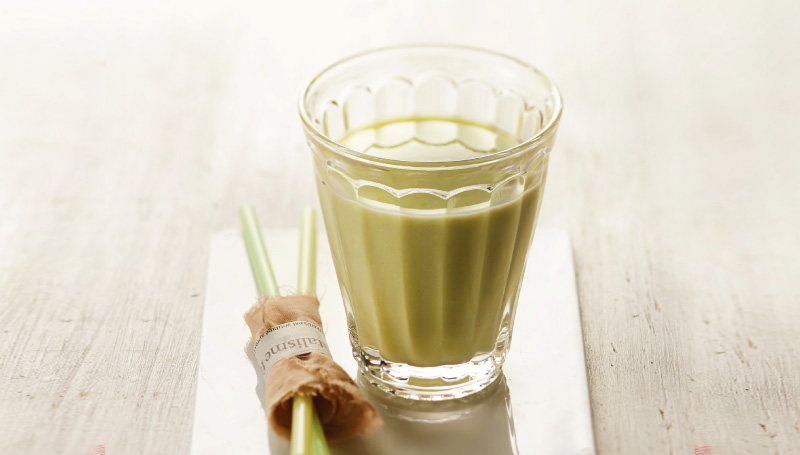
This smoothie, full of vitamins C and K and other nutrients is as nutritious as it is delicious! Extremely rich vitamin C content makes this smoothie great antioxidant. Kiwi is rich in vitamin K, which plays a key role in the blood clotting process. Since pulp of this juice is high in fiber, you can add some of the pulp back to juice and high-fiber content will keep you full longer.
Directions
Peel and cut kiwi into 4 pieces.

Combine almond milk, condensed milk and yogurt. Mix well. Stir in kiwi. Press this mixture using More Juice Press.

Serve cold.

Ingredients for 2 servings
- 5 kiwis
- 1/2 cup of almond milk
- 1/4 cup of yogurt
- 2 tbsp. sweetened condensed milk
Directions



Tips
You can refrigerate ingredients before pressing if you want your smoothie to be cold. You can also mix smoothie with ice to add chill.
In this recipe, we used almond milk, but you can use cow's or soy milk instead.

Recipe Tags:
Almond Milk Calcium Condensed Milk For Kids Kiwi Smoothie Vitamin C Vitamin E (Alpha Tocopherol) Vitamin K YogurtRecipe Category:
smoothie
 SMOOTHIE OR JUICE
SMOOTHIE OR JUICE
 Like us
Like us
Comments
Related recipes
Low-Calorie Tomato Juice
Bell Pepper & Papaya Juice
Orange Melon Juice
Antioxidant-Rich Pineapple Juice
Strawberry Smoothie High in Antioxidants
Fruit & Vegetable Smoothie